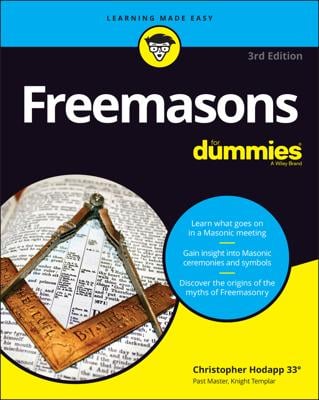The beliefs of Freemasonry can be boiled down to those three simple concepts. Masons are taught to believe in:
- Brotherly love: Love for each other and for all mankind
- Relief: Charity for others and mutual aid for fellow Masons
- Truth: The search for answers to the universal questions of morality and the salvation of the soul that only a man's individual faith and his relationship with God can provide
Brotherly love
Simply put, Masons believe in the Golden Rule. The Golden Rule is part of every great world religion, so it qualifies as the single, unifying theme of all faiths. Its most basic concept is the cornerstone of Freemasonry, no matter how it is phrased:- Buddhism: "In five ways should a clansman minister to his friends and families; by generosity, courtesy, and benevolence, by treating them as he treats himself, and by being as good as his word."
- Christianity: "Do unto others as you would have them do unto you."
- Confucianism: ÒWhat you do not want done to yourself, do not do to others."
- Hinduism: "Men gifted with intelligence . . . should always treat others as they themselves wish to be treated."
- Islam: "No one of you is a believer until he loves for his brother what he loves for himself."
- Judaism: "Thou shalt love thy neighbor as thyself."
- Taoism: ÒRegard your neighbor's gain as your own gain, and regard your neighbor's loss as your own loss."
Relief
Masons do not teach, and have never taught, that good works on Earth are a means of salvation in the afterlife. Masonic charity is practiced to improve the lives of men here and now.Many people who are familiar with Freemasonry but are not members are aware of some of the fraternity's philanthropic and charitable contributions to society. A common statement is made that, internationally, Freemasons provide $3 million every day to charity — $2 million in the United States alone. Three centuries of encouraging good works in its members have resulted in large, institutional charities supported by Freemasons. These include scholarships, relief for natural disasters, and donations to schools and to destitute families. Masons have provided retirement homes for their own members, as well as schools and homes for orphans, and they participate in a dizzying list of community and social programs. Especially notable are the many medical philanthropies supported by Masons, which range from neuromuscular, dental, and eye care, to the world-famous Shriners Hospital program for children.
Although these charities make an enormous contribution to and have a tremendous impact on society, Masons do not perform such services to mankind to receive gratitude or recognition. Individual Freemasons are encouraged to participate in all forms of charity and benevolence for society, not just the ones that get on the evening news or in the morning paper. Masonic charity does not just mean writing a check or throwing coins in a basket. It means giving a part of one's self and one's time — commodities that are always in short supply. By participating in improving the life of a whole community or a single human being, by example, they hope to encourage others to do the same.

